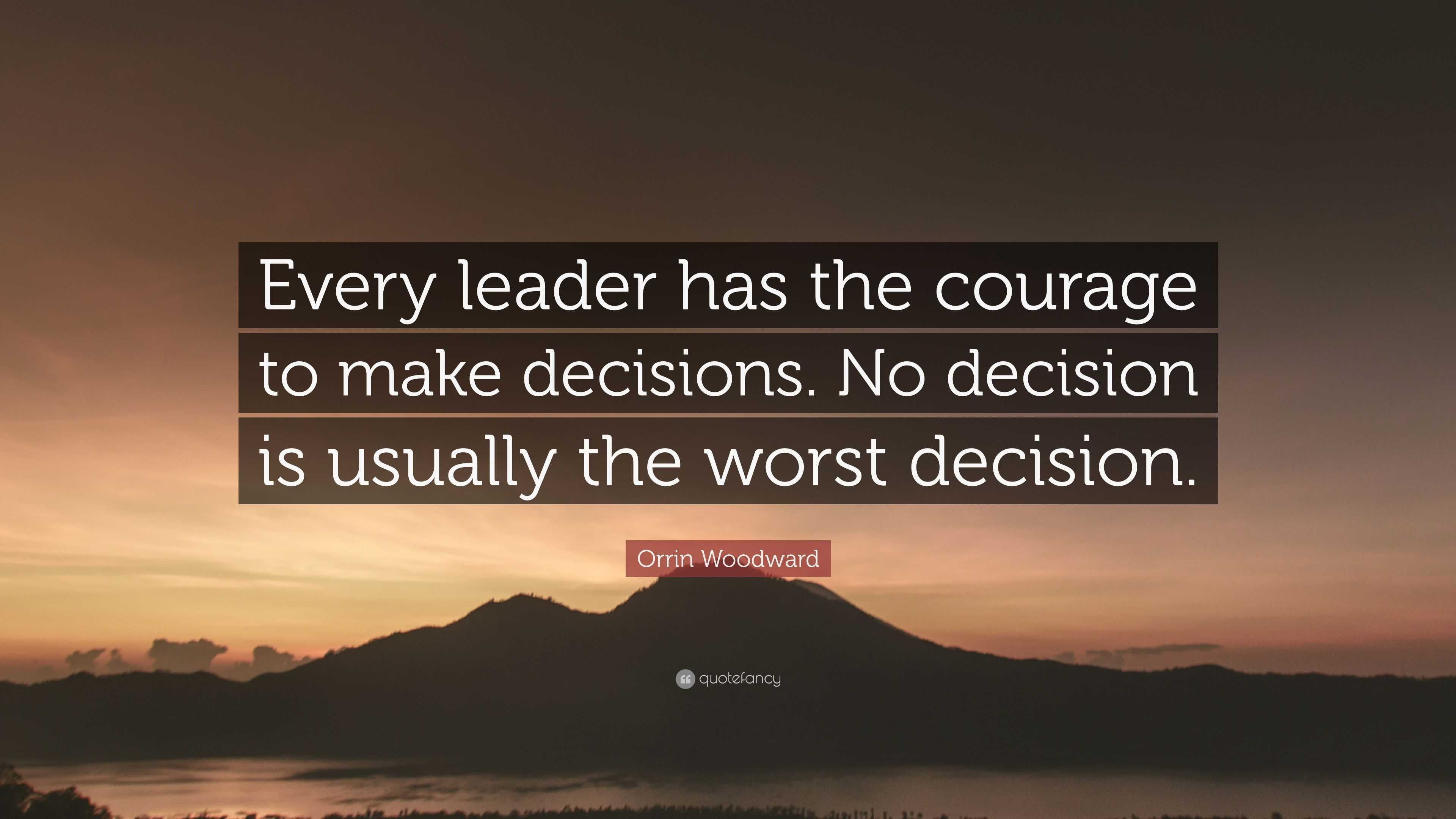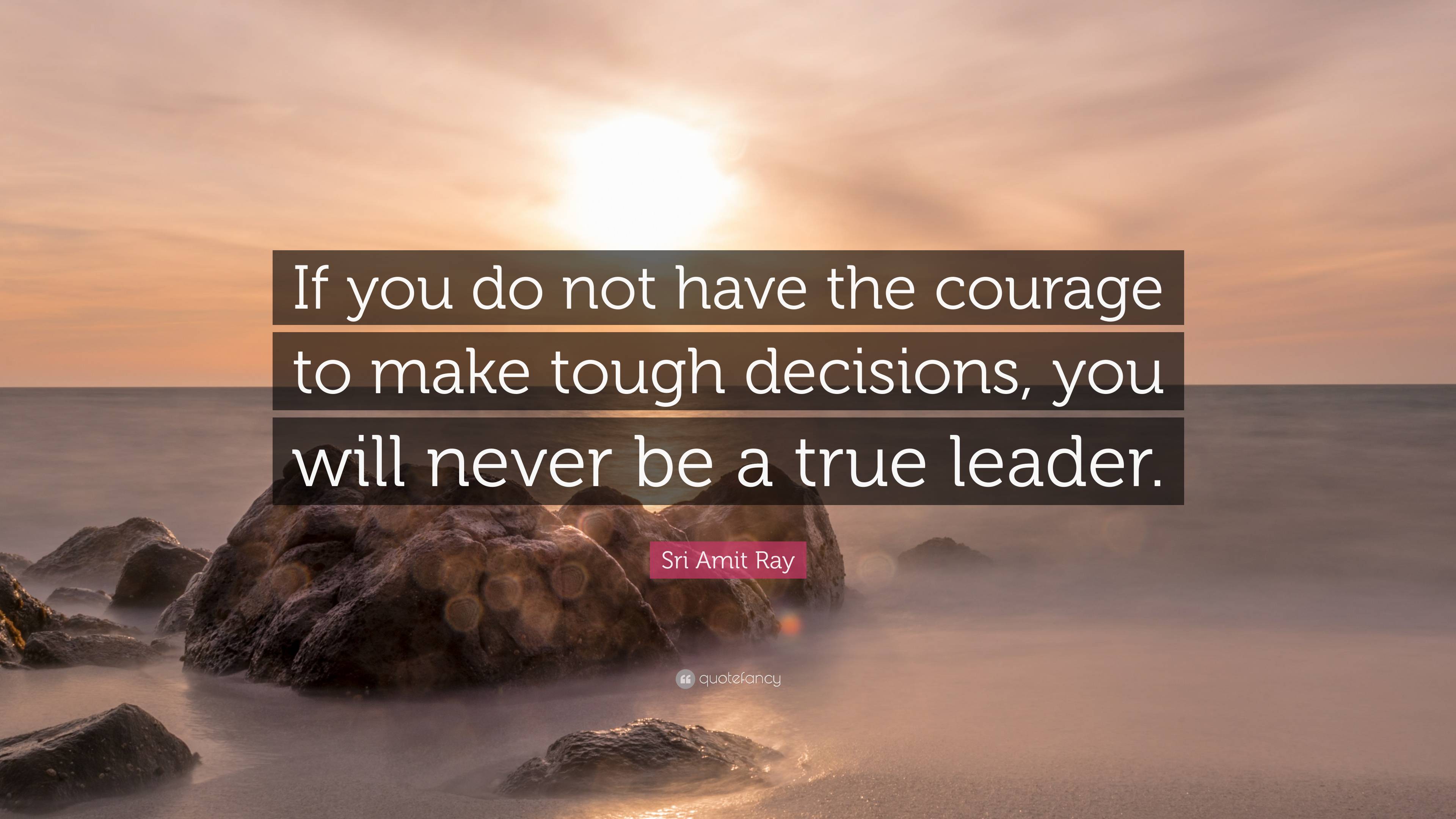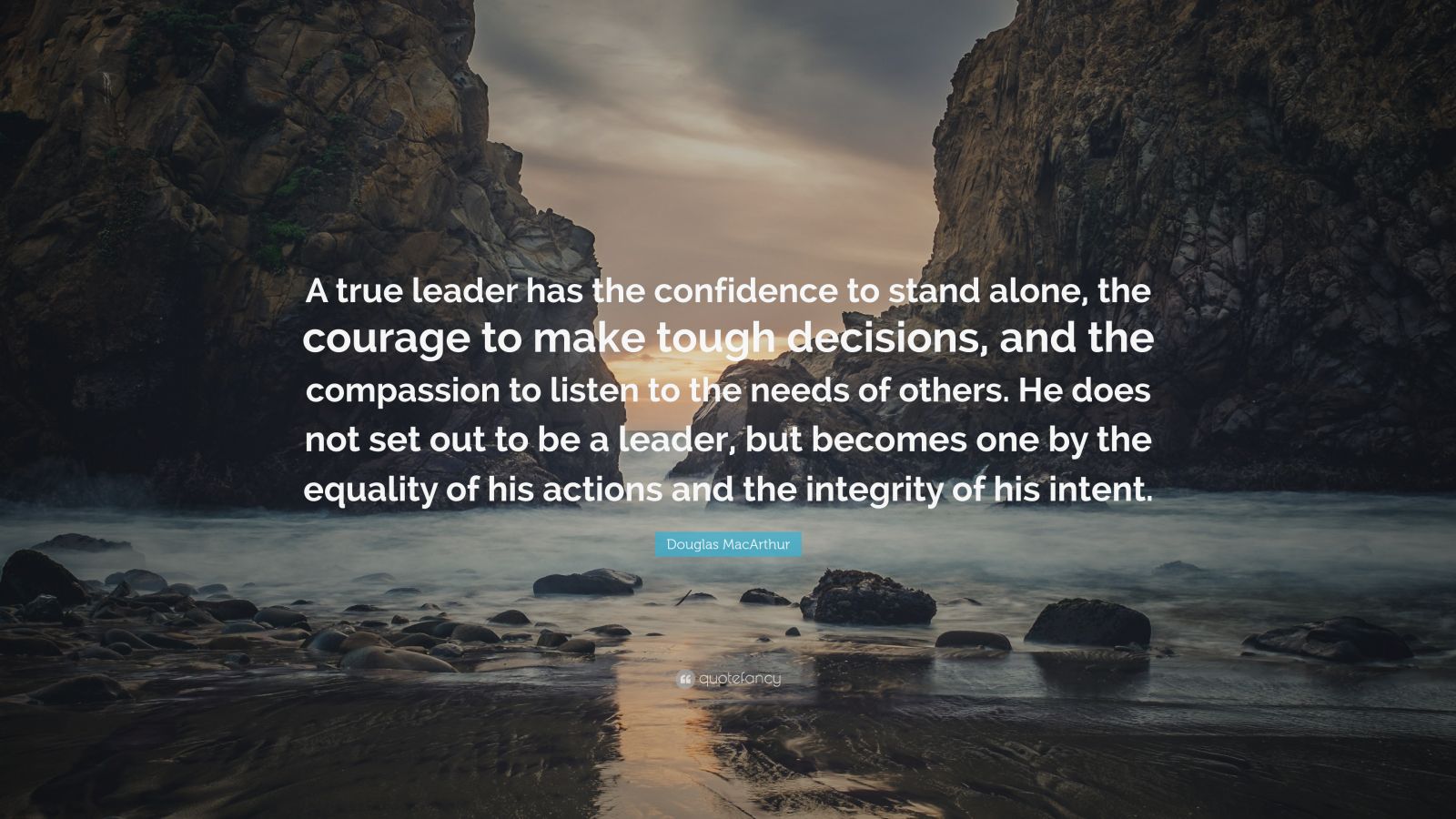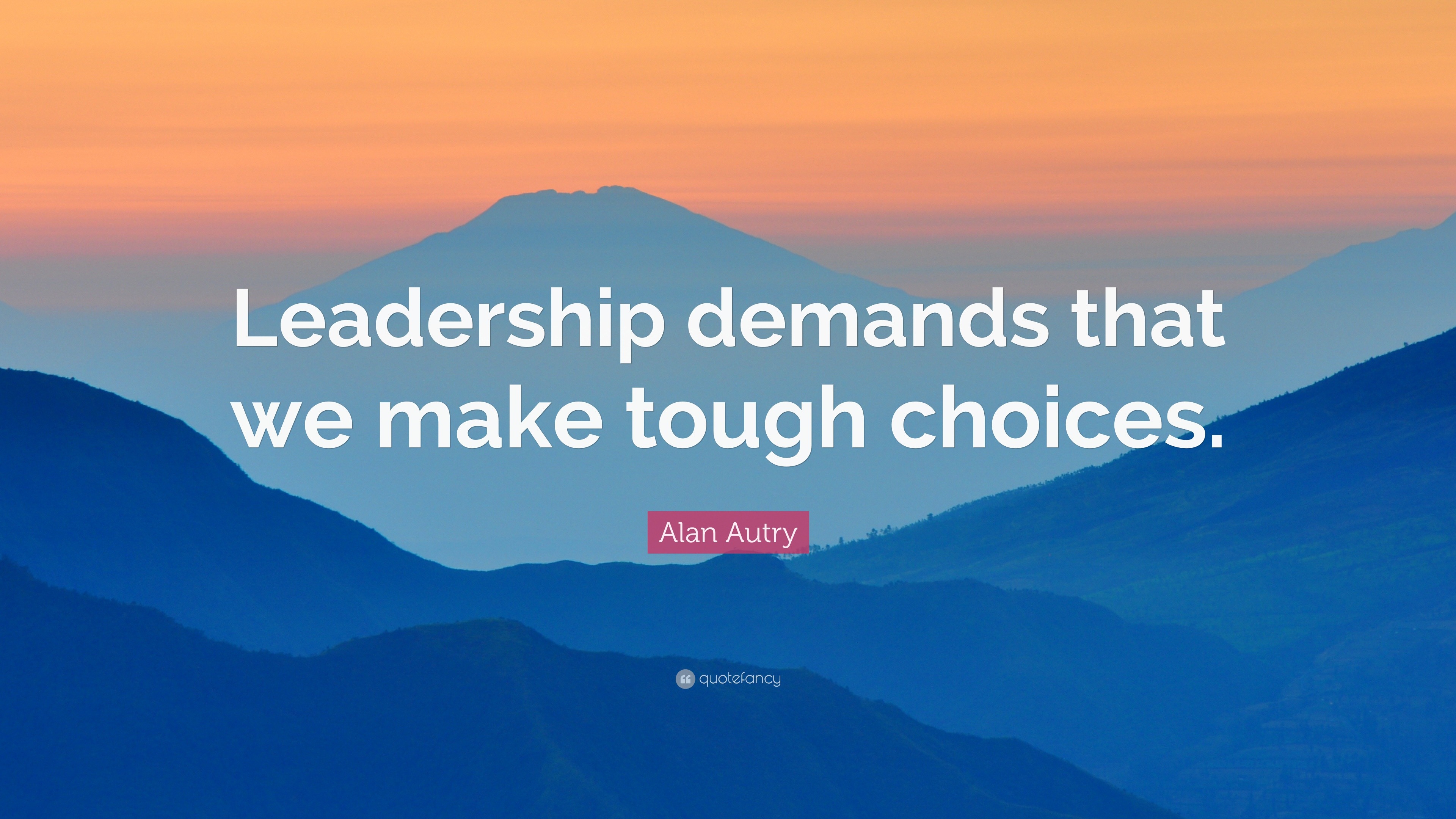Making Tough Decisions As A Leader

The weight of leadership often rests upon the ability to make difficult choices, decisions that can impact not only the trajectory of an organization but also the lives of the people within it. Navigating economic downturns, ethical dilemmas, and evolving market landscapes demands a resolute approach, a quality increasingly scrutinized in today's complex world.
At the core of effective leadership lies the capacity to make sound decisions even when faced with imperfect information and conflicting priorities. This article delves into the multifaceted nature of tough decision-making, exploring the frameworks, challenges, and evolving perspectives that define leadership in moments of critical importance.
The Framework of Decision-Making
Leadership experts emphasize the importance of a structured approach to difficult decisions. This typically involves gathering relevant data, assessing potential consequences, and consulting with stakeholders.
According to a report by the Harvard Business Review, successful leaders prioritize clear communication and transparency throughout the decision-making process. This ensures that everyone understands the rationale behind the choice and its potential impact.
Data and Analysis
Data plays a pivotal role in informing difficult decisions. This includes financial performance, market trends, and employee feedback.
Organizations like McKinsey & Company advocate for a data-driven approach, leveraging analytics to identify patterns and predict outcomes. However, relying solely on data can be limiting, as qualitative factors and ethical considerations often play a significant role.
Ethical Considerations
Ethical dilemmas often present the toughest challenges for leaders. Balancing profitability with social responsibility and employee well-being requires a strong moral compass.
The Ethics & Compliance Initiative (ECI) provides resources and training to help organizations navigate ethical complexities. They emphasize the importance of establishing a strong ethical culture and empowering employees to speak up about concerns.
Challenges and Pitfalls
Even with the best frameworks, leaders can fall prey to common decision-making pitfalls. Cognitive biases, such as confirmation bias and groupthink, can distort perceptions and lead to suboptimal outcomes.
Overconfidence and a reluctance to admit mistakes can also hinder effective decision-making. "The cost of inaction is often greater than the cost of a mistake," according to many CEOs surveyed in a recent Forbes article.
Navigating conflicting priorities is another major challenge. Leaders must often choose between short-term gains and long-term sustainability, or between the needs of different stakeholders.
"It's about finding the best possible compromise, even if it's not perfect," states Dr. Anya Sharma, a leadership consultant specializing in crisis management.
Evolving Perspectives on Leadership
The traditional command-and-control style of leadership is increasingly being replaced by more collaborative and empathetic approaches. Leaders are now expected to involve employees in the decision-making process and to consider their perspectives.
This shift reflects a growing recognition of the importance of diversity and inclusion. Different perspectives can enrich the decision-making process and lead to more innovative and equitable outcomes.
The rise of remote work has also presented new challenges for leaders, requiring them to build trust and maintain communication across geographically dispersed teams. Effective communication and empathy are paramount in this new landscape.
"Leaders must prioritize building trust and creating a sense of community, even when teams are physically separated." - Dr. Emily Carter, author of "Leading in the Digital Age."
Looking Ahead
The future of leadership will likely be defined by an even greater emphasis on adaptability, resilience, and ethical decision-making. Leaders will need to be able to navigate constant change, manage uncertainty, and inspire their teams to overcome challenges.
Developing strong emotional intelligence and critical thinking skills will be essential. Investing in leadership development programs and fostering a culture of continuous learning can help organizations prepare for the future.
Ultimately, the ability to make tough decisions with courage, empathy, and integrity will be the hallmark of successful leaders in the years to come. The weight of responsibility is heavy, but the potential for positive impact is immense.


















